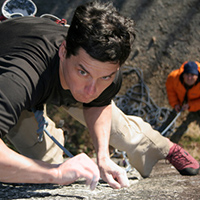The systems and structures that we call "management" are obsolete. They were developed during the industrial era more of a century ago while work has changed today.
Traditional management structures, systems and tools intended to make the first factories efficient are now obsolete. Applying them to knowledge-based work has exactly the opposite effect, causing all kinds of breakdowns. In "Beyond Management" (Palgrave Macmillan, December 2011) author Mark Addleson explains why workers have to manage themselves and tells them how to do it.
Beyond Management explains why the tools, rules, competition and compliance favoured by management are actually disorganising rather than empowering knowledge workers.
Management is dead. Peter Drucker saw this first; "as we advance deeper into the knowledge economy, the basic assumptions underlying much of what is taught and practiced in the name of management are hopelessly out of date.....As a result, we are practicing, teaching and practicing policies that are increasingly at odds with reality and therefore counterproductive."
The problem we are up against, which Drucker saw, is that management cannot be transplanted from the industrial age, where it began, into the age of knowledge-work, from steam power and smokestacks to smoke-free offices and on-the-go smartphones. Once you understand that management practices are playing havoc with knowledge workers, it is relatively easy to see what you ought to do.
Organising is an important part of life. We all know about it and how to do it. Organising is collective work, which is why knowledge workers participate in networks, establish groups, and form teams. And, whether they do it face-to-face, on the phone, or nowadays, online, on social networks sites or texting, organising is unquestionably, a grassroots effort.
Most of what happens and what people do when they are organising (gauging motives, assessing relationships, cooperating, sharing knowledge, aligning) happens beneath the surface of what we see and hear and has to do with the meanings they make.
Besides conversations, what connects a group and distinguishes a loose network, say, from a tightly connected one, is how participants interact: what they say to each other and what meanings they make and share, along with their intentions, attitudes, and relationships, which you can't see and wouldn't know about unless you were part of the group.
Making meaning (individually and collectively) is the real work of organising. This means you can't tell how people are doing and whether it's going well or badly unless you're inside with them. To differentiate good, or productive, organising practices from ones that produce breakdowns, we have to find out all we can about the socialness of networks and teams and the work that participants do in making meaning of what is going on.
Knowledge work is social. Everyone involved ought to be thinking and talking about whether, why, and how the work they are doing together is either up to the mark or falls short of what they expect. Apart from anything else, these conversations are the lifeblood of accountability.
Even when everyone is doing it with the best of intentions, organising can be a tricky process, requiring persistence and agility. Of course, we need administrators, just as we need plans, strategies, guidelines and budgets. They are not ends, but some means of doing good work.
The main merit is that you work and organise on a human scale: person-to-person, relationship-by-relationship. For the sake of good work, for our humanity and for the future, this matters a great deal.
Source: Coach2Coach e-newsletter, January 19, 2012



























